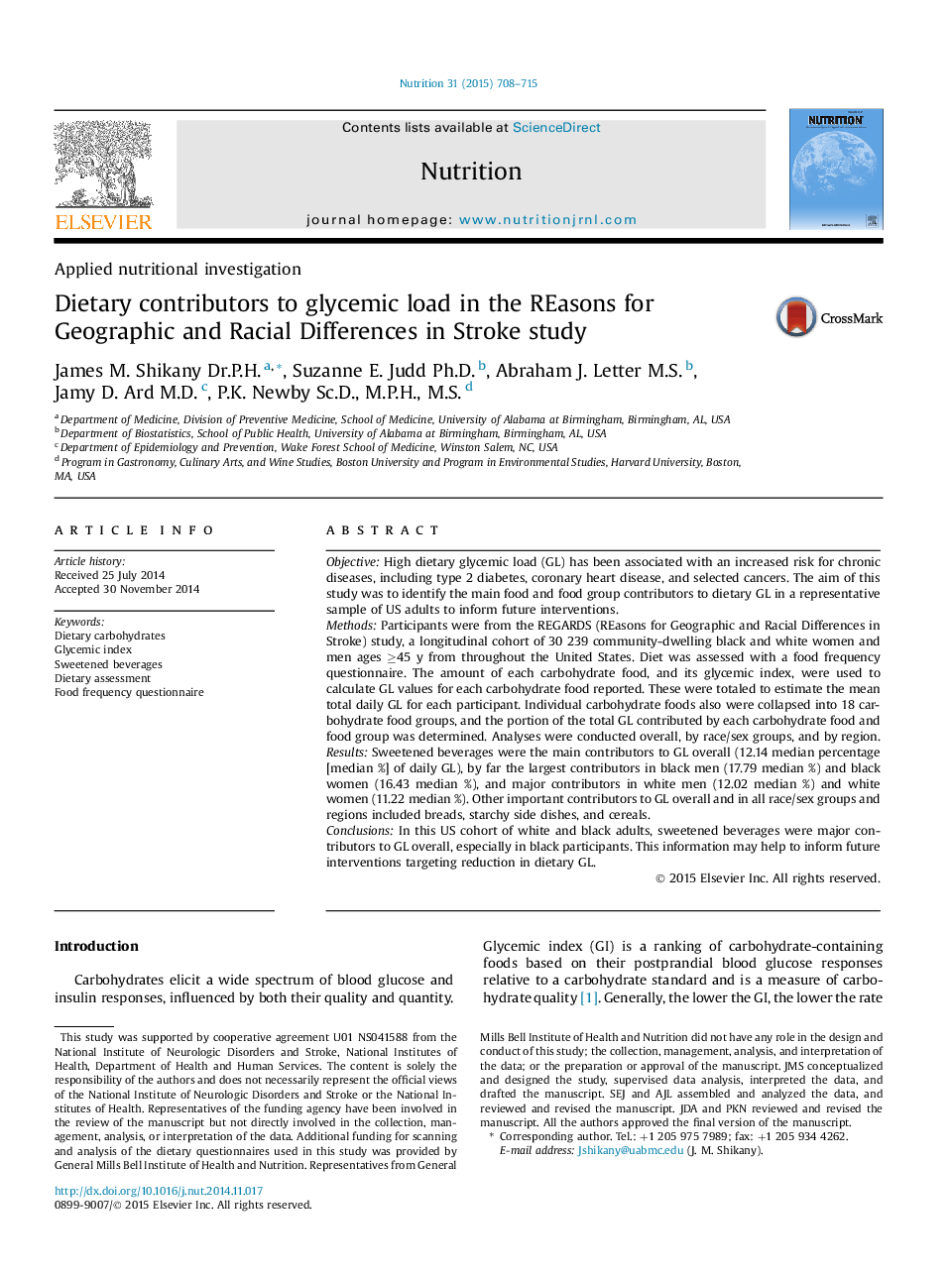| Article ID | Journal | Published Year | Pages | File Type |
|---|---|---|---|---|
| 6089073 | Nutrition | 2015 | 8 Pages |
â¢Sweetened beverages are the main contributors to glycemic load overall.â¢Sweetened beverages are the main contributors to glycemic load in black people.â¢Other contributors to glycemic load were starchy side dishes, breads, and cereals.
ObjectiveHigh dietary glycemic load (GL) has been associated with an increased risk for chronic diseases, including type 2 diabetes, coronary heart disease, and selected cancers. The aim of this study was to identify the main food and food group contributors to dietary GL in a representative sample of US adults to inform future interventions.MethodsParticipants were from the REGARDS (REasons for Geographic and Racial Differences in Stroke) study, a longitudinal cohort of 30 239 community-dwelling black and white women and men ages â¥45 y from throughout the United States. Diet was assessed with a food frequency questionnaire. The amount of each carbohydrate food, and its glycemic index, were used to calculate GL values for each carbohydrate food reported. These were totaled to estimate the mean total daily GL for each participant. Individual carbohydrate foods also were collapsed into 18 carbohydrate food groups, and the portion of the total GL contributed by each carbohydrate food and food group was determined. Analyses were conducted overall, by race/sex groups, and by region.ResultsSweetened beverages were the main contributors to GL overall (12.14 median percentage [median %] of daily GL), by far the largest contributors in black men (17.79 median %) and black women (16.43 median %), and major contributors in white men (12.02 median %) and white women (11.22 median %). Other important contributors to GL overall and in all race/sex groups and regions included breads, starchy side dishes, and cereals.ConclusionsIn this US cohort of white and black adults, sweetened beverages were major contributors to GL overall, especially in black participants. This information may help to inform future interventions targeting reduction in dietary GL.
